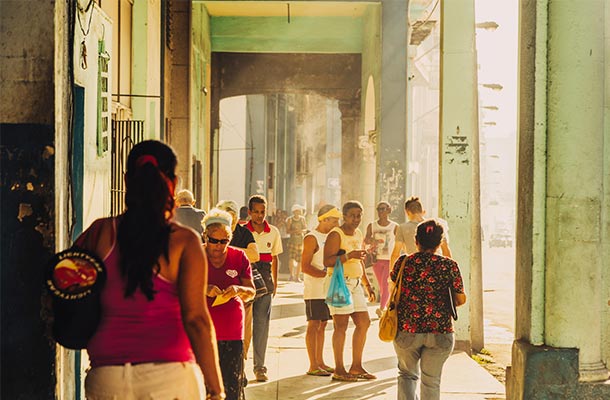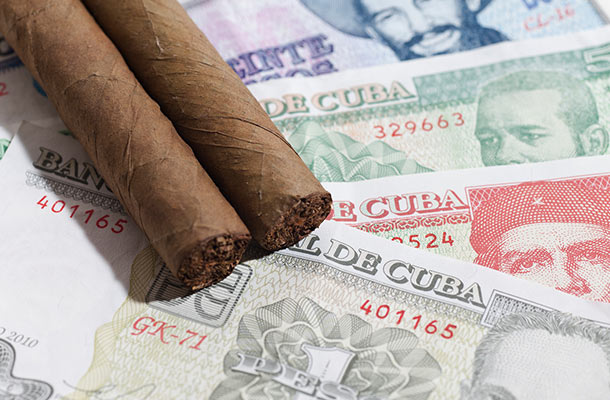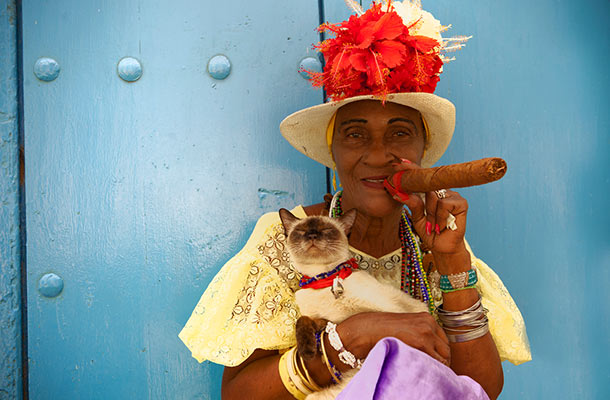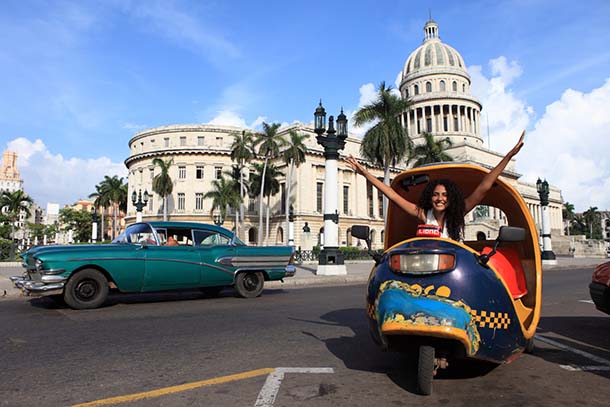Crime and Scams in Cuba: 3 Essential Tips for Travelers
With odd incidents of crime and con artists to look out for, here are a few tips to make your trip to Cuba a safe one.
 Photo © iStock/Nikada
Photo © iStock/Nikada
Nestled comfortably between the North Atlantic Ocean and the Caribbean Sea, Cuba is truly one of the world's most beautiful places to visit. And although there has been some conflict over the past few decades between Cuba and the US, travelers from the rest of the world have long enjoyed vacationing there.
Whether it's luxurious beaches, rugged mountain terrain, outdoor adventure or exciting nightlife you seek, Cuba has all of this and more.
But as beautiful as this island is, there are still occasional incidents of crime there.
Petty crime in Cuba
Most of the crimes committed in Cuba are theft related and are typically non-violent in nature. Two of the most common are pickpocketing and purse snatching, which as in most cases, tend to occur in more crowded or touristy areas.
For instance, the popular areas of Old Town Havana and the Prado neighborhood are hot spots for petty thefts, as are El Centro, Vedado and the Malecon, as well as on the beaches of Playa del Este and Varadero and Santiago de Cuba.
The nightlife in Cuba can be pretty exciting, but clubs and bars are also favorite hangouts of petty thieves so beware. Thieves often target unattended baggage at airports, so it's important to keep your baggage with you or in your sight at all times.
Regardless, it's recommended that you avoid placing items of value in a checked suitcase but rather keep them with you in a carry-on type bag, just in case. Once at your hotel or guesthouse, be sure to lock all valuable items in the safe (if provided) as there have also been reports of items being stolen while travelers are away from their rooms.
Another crime that's on the rise in Cuba is car-related theft. What typically happens is that one criminal will slash the tires of a vehicle, and then offer to assist the unsuspecting victim with the repair. While the decoy criminal is busy "helping" the victim, his or her accomplice will steal anything of value that they can find in the car.
Thieves posing as innocent hitchhikers just looking for a lift are not incredibly common, but they're out there so it's worth mentioning.
The general safety precautions to avoid becoming a victim of these types of petty crimes apply and include not carrying a great deal of cash, keeping valuables well concealed, holding purses or bags tightly in front of you and never leaving items unattended.
Violent crime in Cuba
Recent accounts indicate that violent crime in Cuba, although still relatively rare, is on the rise. It's most often related to lesser, petty crimes such as theft, when a victim resists or fights back and the incident ends in an assault or worse.
Many criminals carry weapons such as knives or machetes, and frequently work in teams. This means that if you are targeted, you are probably outnumbered and you may be harmed. Don't be a hero - if you're confronted in a robbery don't resist, hand over whatever the thug is looking for and get away as quickly as possible to someplace safe.
Incidents of sexual assault also occur from time to time against women, particularly at night and in areas that aren't frequented by a lot of tourists. Much of the catcalling and whistling that goes on can be considered relatively harmless; however female travelers should be aware of their surroundings and try to avoid walking around alone.
Scams and con artists in Cuba
Some career criminals commonly referred to as "jineteros", spend the majority of their time on the streets trying to swindle tourists. They typically speak very good English and appear to be friendly and welcoming.
They may offer to help tourists by playing tour guide, or offering to get them deals on merchandise like cigars. What they end up doing is robbing you, so be cautious of anyone who seems overly friendly and eager.
A lot of swindlers will attempt to sell merchandise and items on the street which appear to be legitimate but are actually fakes.
Anything from rum to cigars to bottled water is often sold to unsuspecting tourists, and although the packaging may be real, the contents are not.
Before you part with your money buying what you think is the real deal at a cheap price, think it through. Otherwise you'll be left with garbage and the scammers will have your cash.
Though these hustlers are typically not violent, it's not unheard of for them to resort to violence in order to get what they are after. As always, be very aware of your surroundings at all time and use common sense.
Cuba, with its beautiful coastline, breathtaking natural wonders and titillating nightlife, offers tourists excitement, adventure and memories to last a lifetime. As with any travel destination, however, there are certain risks and dangers that visitors must be aware of if they are to enjoy a safe stay. By knowing what to look out for and how to protect yourself, you can stay out of harm's way while experiencing everything wonderful that Cuba has to offer.
Related articles
Simple and flexible travel insurance
You can buy at home or while traveling, and claim online from anywhere in the world. With 150+ adventure activities covered and 24/7 emergency assistance.
Get a quote


No Comments